Guide to Tent Rentals from Experts
Tent Rentals: Why and When They Make Sense
Tent rentals play a pivotal role in the world of camping and outdoor events. They offer a convenient and often cost-effective solution for many campers, especially those who are new to the experience or don’t camp frequently enough to justify the expense of owning a tent. Understanding when and why renting a tent makes sense can help you make the best decision for your outdoor adventures.
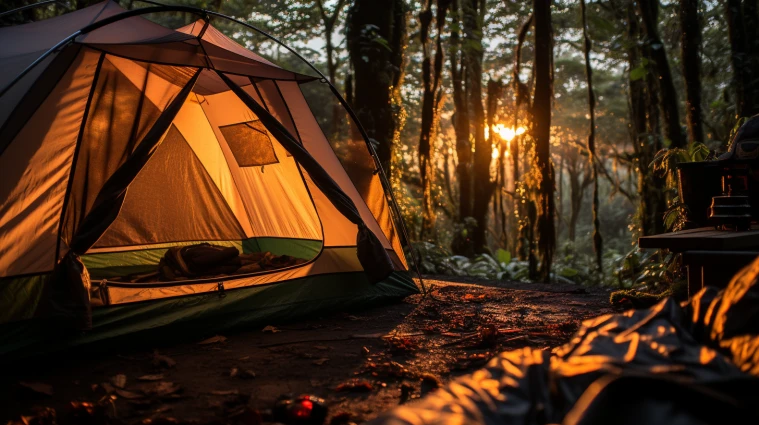
The Role of Tent Rentals in Camping and Outdoor Events
The concept of renting camping gear, particularly tents, has grown in popularity for various reasons. For starters, tent rentals eliminate the need for a significant initial investment in camping gear. High-quality tents can be expensive, and if camping isn’t a frequent activity for you, the cost of purchasing a tent may not be justifiable. Rental tents offer the advantage of trying out different types and sizes of tents without the commitment of buying, allowing you to explore various camping styles and requirements.
Additionally, renting a tent is an excellent option for special events like outdoor festivals, family reunions, or group camping trips where you might need larger or more tents than usual. In such cases, the convenience of renting, rather than buying and maintaining multiple tents, becomes apparent. Rental companies often provide additional services, such as set-up and take-down, further easing the logistical burden on event organizers or campers.
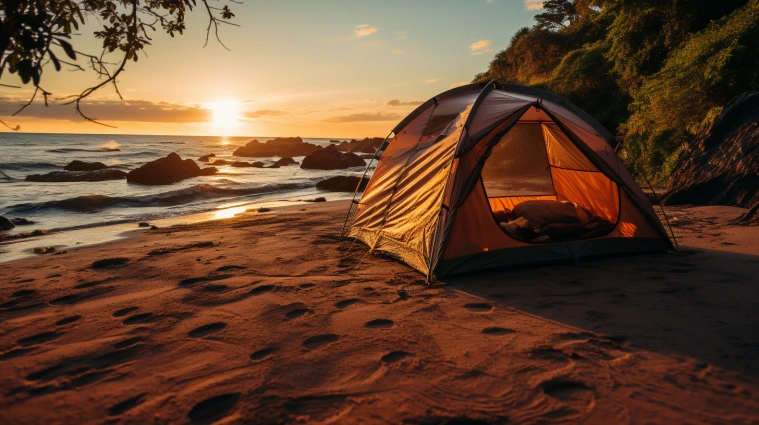
Scenarios Ideal for Renting a Tent
There are several scenarios where renting a tent is more advantageous than purchasing one. These include:
- Occasional Camping: If you’re someone who camps once or twice a year, renting a tent can be more economical. It saves you from the costs associated with purchasing, maintaining, and storing a tent.
- First-Time Campers: For those who are new to camping, renting a tent offers an opportunity to try out camping without the upfront investment. It allows you to gauge your interest and preferences before committing to purchasing your gear.
- Traveling Campers: For campers traveling to a distant location where transporting camping gear is impractical, renting a tent at the destination can be a convenient solution. This is particularly true for campers flying to their camping destinations.
- Testing High-End Models: Renting gives you the chance to test out high-end or specialized tents that you might be considering for purchase. It’s an excellent way to evaluate a tent’s performance in real conditions before making a significant investment.
- Special Camping Events: For unique camping experiences like a backcountry trip or a specific camping event where your standard tent might not be suitable, renting a specialized tent for the occasion is a sensible choice.
In conclusion, tent rentals offer flexibility, convenience, and cost savings in various camping scenarios. They allow you to enjoy the camping experience without the hassle of owning, maintaining, and storing a tent, making them an ideal choice for occasional campers, travelers, and those new to camping.

Key Considerations Before Renting a Tent
Renting a tent is not a one-size-fits-all solution. To ensure a comfortable and enjoyable camping experience, it’s crucial to consider several key factors before making a rental choice. Assessing the right size, material, and weather compatibility, along with understanding the special features of rental tents, can significantly influence your camping experience.
Tent Rental: Assessing the Right Size and Material for Your Needs
When selecting a rental tent, size and material are two of the most important considerations:
- Determining the Right Size: The size of the tent you need depends largely on the number of people using it and the amount of gear you plan to store inside. A common rule of thumb is to choose a tent that offers extra space. For example, for two people, a three-person tent may offer more comfortable space for both sleeping and storage. Remember, more space means more comfort, especially on longer camping trips.
- Material Matters: The material of the tent impacts its weight, durability, and weather resistance. Nylon and polyester are common materials that offer a balance between durability and weight, making them suitable for most camping situations. However, for more rugged conditions, consider heavier-duty materials. Also, check the tent’s waterproof rating to ensure it can withstand the weather conditions you anticipate.

Weather Compatibility and Special Features of Rental Tents
The weather compatibility of a tent is another crucial aspect to consider:
- Weather Conditions: Evaluate the typical weather conditions of your camping destination. If you expect rain, ensure the tent has a quality rainfly and waterproof floors. For camping in colder environments, look for tents with better insulation and wind resistance. Conversely, in hot and dry conditions, tents with ample ventilation and UV protection become more important.
- Special Features: Many rental tents come with additional features that can enhance your camping experience. Look for features like mesh windows for ventilation, interior pockets for organization, and easy-to-use zippers. Features like a vestibule for storing dirty shoes or gear outside the sleeping area can also be very useful. Furthermore, consider the ease of setup – a tent that is quick and simple to erect can save a lot of time and hassle, especially for beginners.
In summary, choosing the right tent to rent involves careful consideration of size, material, weather compatibility, and additional features. By selecting a tent that meets your specific needs, you can ensure a more comfortable, convenient, and enjoyable camping experience. Remember, the right tent can make all the difference in how you experience the great outdoors.

Selecting the Perfect Tent Rental Company
Choosing the right tent rental company is just as important as selecting the tent itself. A reputable and reliable rental company can make a significant difference in your overall camping experience. In this section, we will discuss how to evaluate the reputation and reliability of tent rental companies, as well as understand the cost implications and the additional services they may offer.
Evaluating Reputation and Reliability
The reputation of a tent rental company can offer insight into the quality of their products and the level of their customer service:
- Read Customer Reviews and Testimonials: Start by checking online reviews and testimonials. Look for comments on the quality of the tents, customer service experiences, and any issues with delivery or returns. Positive feedback from previous customers is a strong indicator of a company’s reliability and the quality of their tents.
- Check for Industry Certifications and Awards: Certifications or awards from recognized industry bodies can be a testament to a company’s commitment to quality and service standards.
- Inquire About Tent Maintenance and Quality Checks: Reliable companies perform regular maintenance and quality checks on their rental equipment. Don’t hesitate to ask how often the tents are checked and cleaned, and what processes are in place for maintaining and updating their inventory.

Understanding Cost Implications and Additional Services
Apart from the basic rental cost, there are other financial aspects and additional services to consider:
- Transparent Pricing Structure: Look for companies with clear and upfront pricing. Be wary of hidden costs such as late fees, cancellation fees, or additional charges for accessories.
- Compare Rental Packages: Some companies offer rental packages that include not just the tent but also other camping gear like sleeping bags, cooking equipment, and lanterns. These packages can sometimes be more cost-effective than renting items individually.
- Delivery and Setup Services: For an additional fee, some rental companies offer delivery and setup services. This can be particularly beneficial if you’re camping at a site far from home or if you’re unfamiliar with setting up tents.
- Flexibility in Rental Periods: Choose a company that offers flexible rental periods that suit your camping schedule. This is especially important for longer trips or if your travel plans are subject to change.
- Availability of Emergency Support: Inquire if the company provides support in case of equipment failure. Reliable companies will offer some form of emergency assistance or gear replacement service.
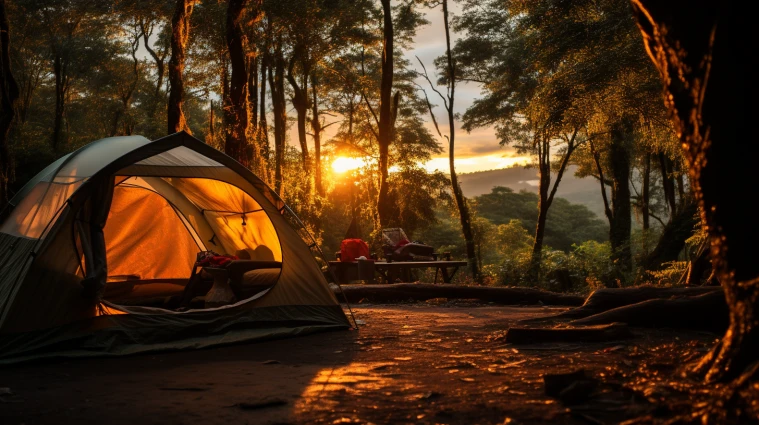
Selecting the perfect tent rental company requires thorough research and understanding of what they offer beyond just the tent. By evaluating their reputation, understanding the costs involved, and considering the additional services they provide, you can ensure a seamless and enjoyable camping experience. Remember, the right rental company will not only provide you with a quality tent but also contribute to the overall success of your camping adventure.
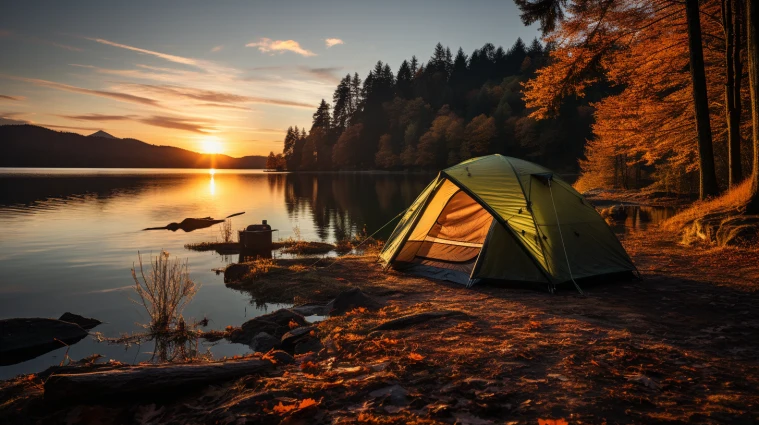
Common Pitfalls in Tent Renting and How to Avoid Them
Renting a tent for your camping trip can be straightforward, but certain pitfalls can detract from your experience. Being aware of these common mistakes and knowing how to avoid them will ensure that your tent rental process is smooth and hassle-free. Let’s delve into the key tent features often overlooked and the intricacies of navigating rental agreements and terms.
Overlooking Key Tent Features
One of the main pitfalls when renting a tent is not paying enough attention to specific tent features that can make or break your camping experience:
- Inadequate Size and Space: A common mistake is underestimating the space you’ll need. Remember, the labeled capacity (e.g., a ‘two-person’ tent) often doesn’t account for storage space for gear. Opt for a tent that can accommodate one more person than the number in your group, providing extra space for comfort and storage.
- Ignoring Weather Suitability: Not all tents are created equal, especially when it comes to weather resistance. Ensure the tent is suitable for the specific weather conditions of your destination. For instance, a tent that’s great for dry, warm conditions might not hold up well in a rainy, windy environment.
- Ventilation Features: Poor ventilation can lead to condensation inside the tent, making for an uncomfortable environment. Check for tents with adequate ventilation features, such as mesh windows or vents.
- Ease of Setup: Especially important for beginners, the complexity of setting up the tent should be considered. Opt for tents known for their ease of setup and takedown.
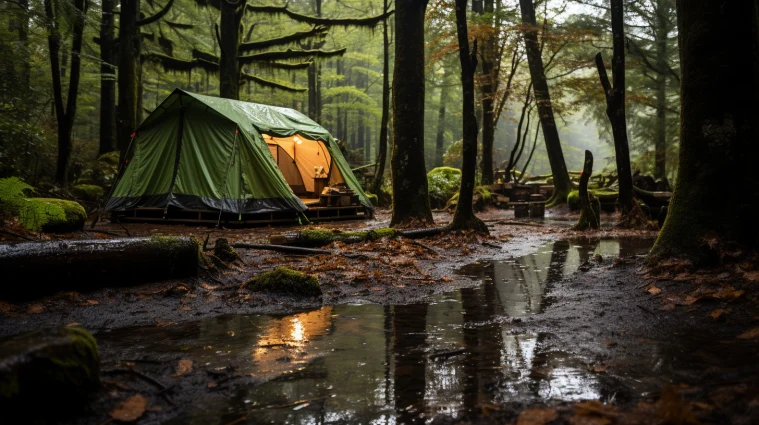
Navigating Rental Agreements and Terms
Understanding the terms of your rental agreement is crucial to avoid unexpected issues:
- Read the Fine Print: Rental agreements can have various stipulations regarding damage, late returns, and cancellation policies. Make sure to read and understand these terms to avoid unforeseen charges.
- Damage Liability: Be clear about your liability in case of damage to the tent. Some rental companies offer damage protection plans for an additional fee, which might be worth considering.
- Cancellation and Modification Policies: Life is unpredictable, and plans can change. Familiarize yourself with the rental company’s policies on cancellations or modifications to your rental period.
- Late Return Fees: Understand the exact time and date the tent needs to be returned to avoid late fees. Plan your trip itinerary keeping in mind these deadlines.
- Cleaning and Maintenance Requirements: Some rental companies require the tent to be returned in a clean condition or may charge a cleaning fee. Know these requirements in advance to prepare accordingly.
In summary, renting a tent can significantly enhance your camping experience if done right. By paying attention to key tent features and thoroughly understanding the rental agreement, you can avoid common pitfalls. This careful consideration will ensure that your focus remains on enjoying your camping trip, rather than dealing with rental complications.

Expert Tips for a Hassle-Free Tent Rental Experience
To ensure a smooth and enjoyable camping experience, it’s essential to approach tent rental with a well-informed and meticulous mindset. This section provides expert tips, including a comprehensive checklist for tent renters and essential inspection tips, to help you navigate the rental process effectively and avoid common issues.
Comprehensive Checklist for Tent Renters
When renting a tent, a thorough checklist can be your best tool in ensuring you have everything you need. Here’s what to consider:
- Rental Duration: Confirm the duration of your rental and ensure it aligns with your camping trip dates. Allow some buffer time for pickup and return.
- Size and Capacity: Choose a tent that comfortably accommodates your group and gear. Consider opting for a tent that is one size larger than the number of people in your group for extra space.
- Tent Type and Features: Decide on the type of tent based on your destination and season. Ensure it has features like weather resistance, ventilation, and ease of setup.
- Cost Breakdown: Understand the total cost, including any deposits, additional fees for late returns, or extras like delivery or setup services.
- Pickup and Return Locations and Times: Note the location for picking up and returning the tent. Plan your travel schedule around these locations and their operating hours.
- Emergency Contacts: Obtain contact information for the rental company in case of any issues or emergencies during your trip.
- Additional Gear: Check if you need other camping gear like sleeping bags, cooking equipment, or camping chairs, which might also be available for rent.
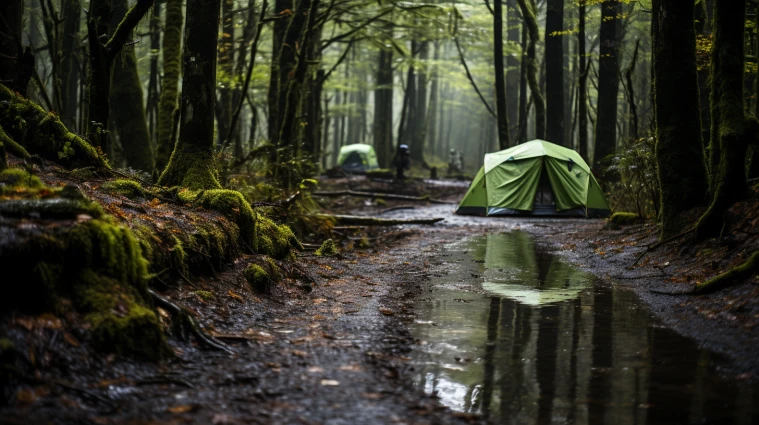
Essential Inspection Tips Before Finalizing the Tent Rental
Before finalizing the tent rental, a detailed inspection is crucial:
- Check for Damage: Inspect the tent for any tears, holes, or damage. Ensure that the zippers work smoothly and that there are no broken parts.
- Verify All Components Are Included: Make sure all components of the tent are included – poles, stakes, rainfly, and any additional accessories. A missing component can cause significant inconvenience.
- Test Waterproofing: If possible, check the waterproofing of the tent, especially if you anticipate rainy weather.
- Understand Setup and Takedown: Ask for a demonstration of setting up and taking down the tent. If it’s complicated, consider taking notes or a video.
- Cleaning Requirements: Clarify the cleaning requirements before return. Some companies may require you to clean and dry the tent before returning, while others may handle it themselves for a fee.
- Document the Tent’s Condition: Take photos of the tent when you receive it. This can be helpful if there are disputes about its condition upon return.
Following these expert tips and utilizing the comprehensive checklist can significantly streamline your tent rental process. A meticulous approach to selecting, inspecting, and understanding the rental terms ensures a hassle-free experience, allowing you to focus on the joys of camping and exploring the outdoors.
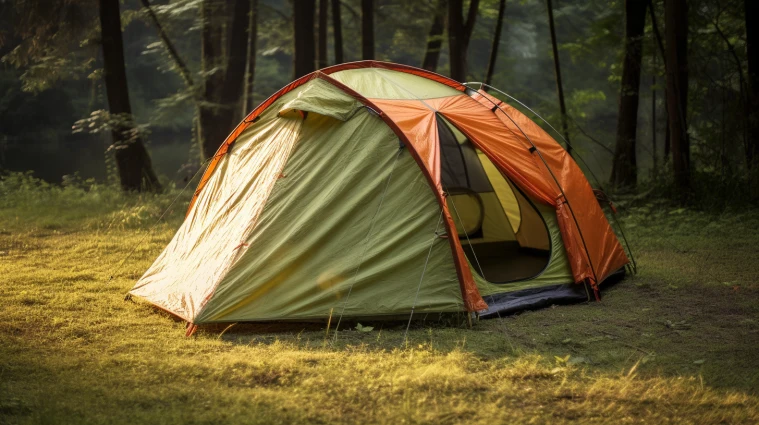
Why Buying a Tent Could Be a Better Option Than Tent Rental
While renting a tent can be suitable for occasional campers or those trying out camping for the first time, purchasing a tent often makes more sense for avid campers or those who plan to camp regularly. This section will explore the long-term costs and benefits of owning a tent and identify situations where buying a tent outweighs renting.
Analyzing Long-term Costs and Benefits
The decision between renting and buying a tent can significantly impact your camping experiences and finances over time. Here’s an analysis of the long-term costs and benefits of owning a tent:
- Cost-Effectiveness Over Time: Initially, buying a tent is more expensive than renting. However, frequent renters will find that the cumulative cost of renting can quickly surpass the one-time purchase cost of a tent. If you camp several times a year, purchasing a tent can be more economical in the long run.
- Investment in Quality: When you own a tent, you have the opportunity to invest in higher-quality gear that suits your specific needs and preferences. High-quality tents are not only more durable but also offer better protection against various weather conditions, enhancing your overall camping experience.
- Avoiding Rental Hassles: Owning a tent eliminates the need to deal with rental logistics, such as booking, pickup, and return. It offers the convenience of having your tent ready whenever you decide to embark on a camping trip.
- Personalization and Familiarity: With your tent, you become familiar with its setup, features, and quirks, making it easier to use each time. You can also personalize your camping gear, adding elements that enhance your comfort and convenience.
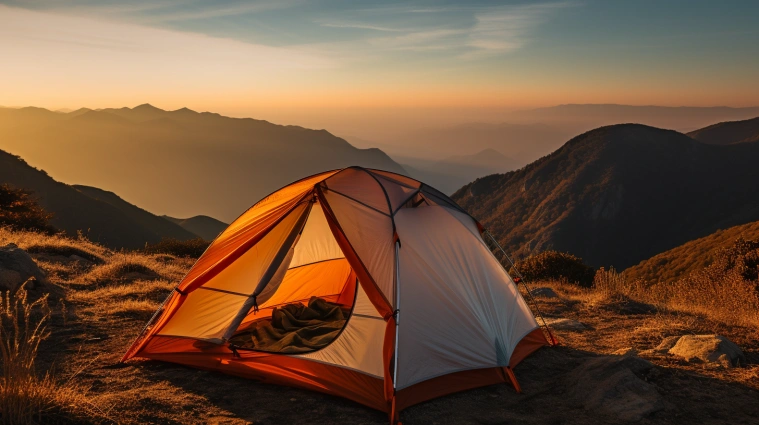
Situations Where Owning Trumps Renting
There are specific scenarios where owning a tent is clearly more advantageous than renting:
- Frequent Camping: For those who camp multiple times a year, the cost savings and convenience of owning a tent are undeniable. The freedom to embark on a camping trip without the constraints of rental availability or deadlines is a significant advantage.
- Family or Group Camping: If you often go camping with family or friends, owning a larger tent that accommodates your group comfortably can be more practical and cost-effective than repeatedly renting large tents.
- Extended Trips: For extended camping trips, owning a tent is more feasible. Rental costs for long durations can be substantial, and the assurance of having a tent that you are comfortable with and meets all your needs is invaluable.
- Camping in Remote Locations: For those who enjoy camping in remote or less accessible locations, owning a tent offers the flexibility to camp anywhere without worrying about returning rental equipment on time.
In summary, while tent rentals have their place, purchasing a tent can be a wiser choice for regular campers who value cost-effectiveness, convenience, and a personalized camping experience. Owning a tent is an investment in your camping lifestyle, offering both freedom and familiarity that rental tents cannot match.
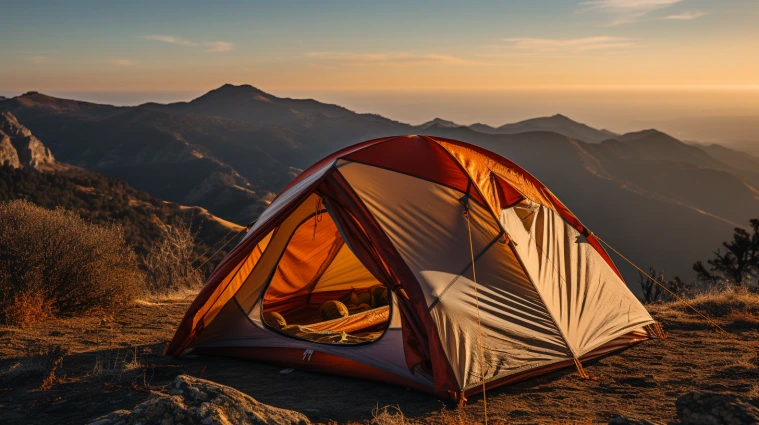
Viewing Tent Equipment as a Lifestyle Investment
For regular campers and outdoor enthusiasts, investing in tent equipment is not just a purchase; it’s an investment in a lifestyle. High-quality camping gear, particularly tents, can significantly enhance your outdoor experiences, making each adventure more enjoyable and comfortable. This section explores the advantages of investing in your tent equipment and how quality gear can elevate your outdoor experiences.
Advantages for Regular Campers and Outdoor Enthusiasts
Investing in your tent and associated camping gear offers several advantages, especially for those who frequently escape into the outdoors:
- Durability and Reliability: Quality tents are designed to withstand various weather conditions and terrains. By investing in a durable tent, you reduce the risk of encountering issues like leaks, tears, or broken poles, which are more common with lower-quality or heavily used rental tents.
- Customization to Fit Your Needs: When you own your tent, you can select one that perfectly fits your specific camping style. Whether you need a lightweight tent for backpacking, a spacious family tent, or a specialized tent for extreme weather conditions, owning your gear means it’s tailored to your adventures.
- Improved Camping Experience: High-quality tents often come with features that enhance your camping experience, such as better ventilation, easier setup, more comfortable interiors, and enhanced environmental protection. These features can make a significant difference in how much you enjoy your time outdoors.
- Cost-Effective in the Long Run: For regular campers, the initial cost of a high-quality tent can be offset by its longevity and the frequency of use. Unlike rental fees that add up over time, a one-time investment in a good tent can be more economical.
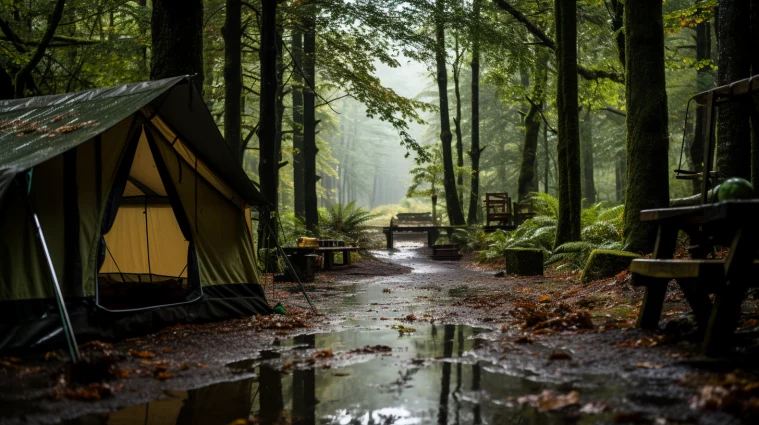
How Quality Gear Enhances the Outdoor Experience
The quality of your camping gear directly impacts your comfort and enjoyment during your outdoor adventures:
- Comfort and Convenience: A well-chosen tent provides a comfortable and secure shelter, ensuring a good night’s sleep and a pleasant resting space, which is crucial after a day full of outdoor activities.
- Adaptability to Various Environments: High-quality tents are designed to adapt to different environments and weather conditions. Whether camping in the mountains, by the beach, or in a forest, the right tent can provide the necessary shelter and comfort.
- Increased Safety: Quality tents are built with safety in mind, offering features like flame-retardant materials, sturdy frames that can withstand strong winds, and waterproof coatings to keep you dry.
- Environmental Impact: Owning a tent means you’re responsible for its upkeep. This encourages a more sustainable approach to camping, as you’re more likely to repair rather than replace, reducing waste and environmental impact.
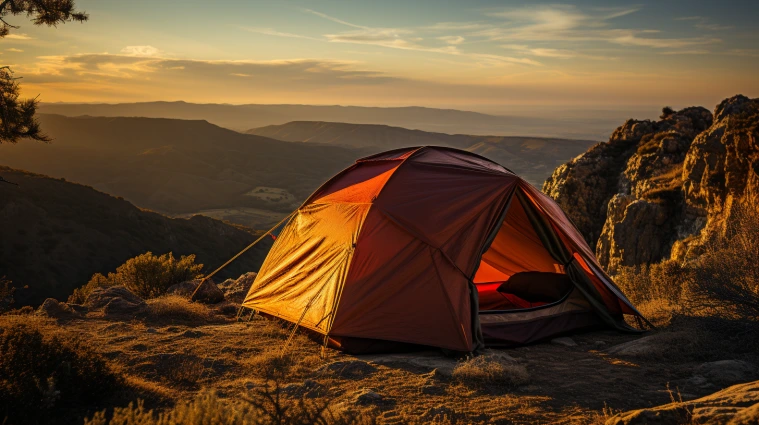
Investing in quality tent equipment is more than just a financial decision; it’s an investment in your passion for the outdoors. For those who see camping and outdoor activities as integral parts of their lifestyle, owning the right gear enhances every aspect of the experience, from comfort and safety to environmental consciousness. Quality camping gear not only enriches your adventures but also connects you deeper with the outdoor lifestyle you cherish.
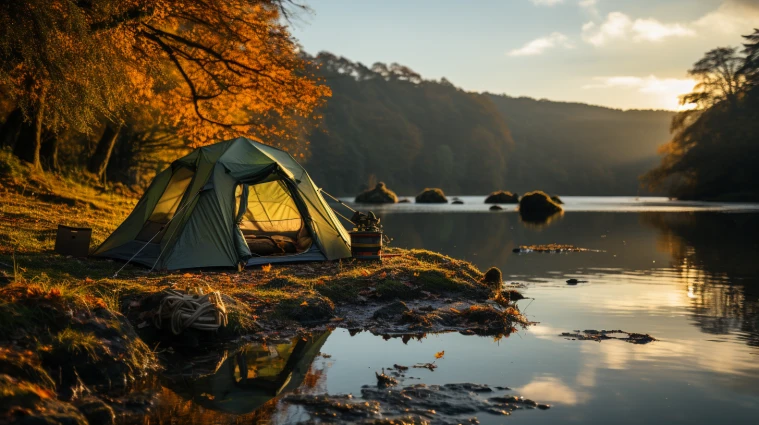
The Financial Sense in Buying vs. Renting a Tent
When it comes to acquiring camping equipment, particularly tents, the decision between buying and renting is not just about convenience but also financial prudence. This section delves into the cost-effectiveness of purchasing a tent as opposed to renting over time and the additional value that comes with personalization and familiarity with your own gear.
Cost-Effectiveness of Purchasing Over Time
The debate between buying and renting a tent can be clarified by examining the long-term financial implications:
- Initial Investment vs. Recurring Rental Costs: The upfront cost of buying a high-quality tent might seem steep compared to the rental fee for a single trip. However, for regular campers, these rental fees can accumulate significantly over time. In contrast, a purchased tent, although initially more expensive, can be used for many trips over several years, ultimately proving to be more cost-effective.
- Longevity and Quality: High-quality tents are designed to last. Investing in a durable tent means you won’t have to deal with the recurring expense and hassle of renting or the possibility of getting a tent in less-than-ideal condition. Over several years, the cost per trip of owning a tent diminishes, making it a financially sound decision for avid campers.
- Avoiding Hidden Rental Costs: Tent rentals can sometimes come with hidden costs, such as late return fees, damage charges, or cleaning fees. Owning your tent eliminates these potential extra expenses.
- Resale Value: Quality camping gear, especially well-maintained tents from reputable brands, can retain a significant portion of their value. This means you can recoup some of your initial investment if you decide to sell your tent later.
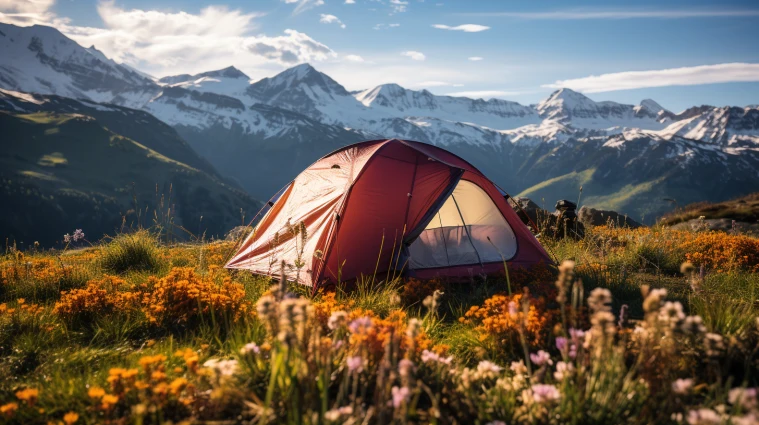
The Value of Personalization and Familiarity with Your Own Gear
Beyond the monetary aspect, owning a tent offers intangible benefits that enhance the camping experience:
- Personalization: Owning a tent allows you to select a model that perfectly fits your specific needs and preferences, be it in terms of size, style, or features. This level of customization is not possible with rentals.
- Familiarity and Ease of Use: With repeated use, you become familiar with your tent’s setup, quirks, and best practices. This familiarity can make setting up camp quicker, easier, and more efficient, allowing you more time to enjoy the outdoors.
- Emotional Value: There’s an emotional aspect to owning your camping gear. Tents often become a part of memorable experiences and adventures. This emotional connection is something that rental gear cannot replicate.
- Hygiene and Cleanliness: With your tent, you have control over its cleanliness and maintenance. This can provide peace of mind, especially in times when hygiene is a significant concern.
In conclusion, while renting a tent might be suitable for occasional campers or those new to camping, purchasing a tent makes more financial and practical sense for regular campers. The long-term cost savings, coupled with the advantages of personalization, familiarity, and hygiene, make buying a tent a sensible investment for those who frequently indulge in camping and outdoor activities.
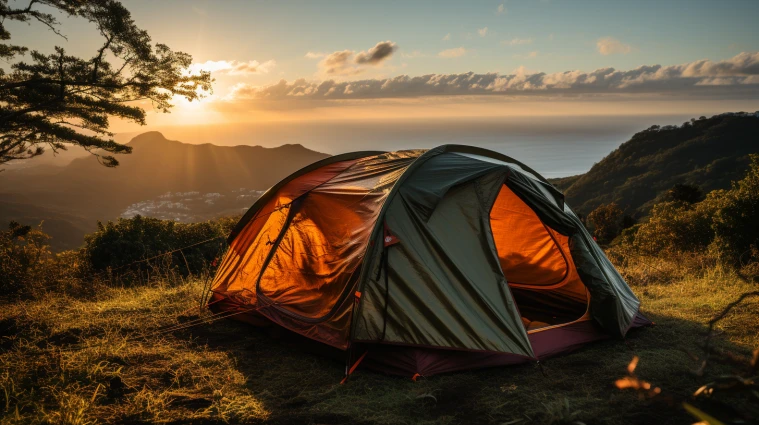
Making the Right Choice for Your Camping Experience
As we wrap up this comprehensive guide on tent rentals versus purchasing, it’s clear that the decision hinges on a delicate balance of practicality, cost, and individual lifestyle needs. Whether you choose to rent or buy a tent for your camping adventures, the ultimate goal is to enhance your outdoor experience in a way that aligns with your personal preferences, camping frequency, and financial considerations. Let’s conclude with some final tips to help you make an informed decision between renting and buying a tent.
Balancing Practicality, Cost, and Lifestyle Needs
The choice between renting and buying a tent can be influenced by various factors:
- Frequency of Camping: If you are an occasional camper, renting might be more economical and practical. However, for those who camp regularly, purchasing a tent can be a more cost-effective and convenient choice in the long run.
- Budget Constraints: Consider your budget. If upfront costs are a concern, renting can be a good start. Conversely, if you have the budget and are looking at camping as a long-term activity, investing in a tent can be financially smarter.
- Storage and Maintenance: Assess your ability to store and maintain a tent. If you lack storage space or prefer not to deal with maintenance, renting might be the better option.
- Camping Style and Preferences: Your camping style – whether you enjoy frequent weekend getaways, extended camping trips, or occasional festivals – can also dictate the best choice. Personalizing your camping gear can greatly enhance your experience if you have specific preferences.
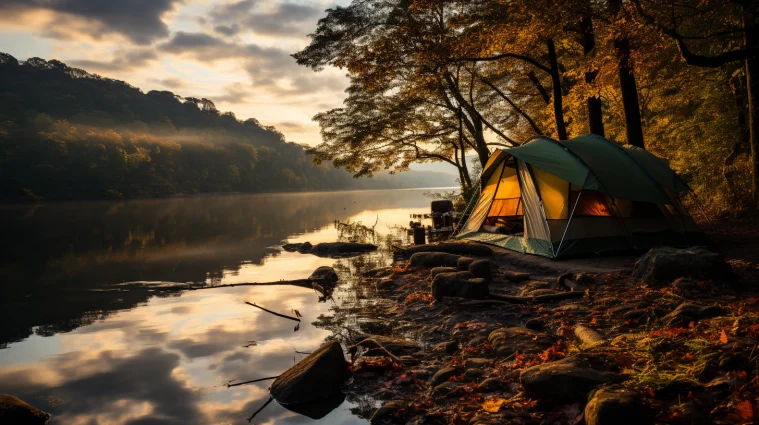
Final Tips for Choosing Between Renting and Buying a Tent
To make the best decision, consider the following tips:
- Evaluate Your Camping Habits: Reflect on how often you camp and under what conditions. This assessment can guide you toward either the flexibility of renting or the long-term benefits of buying.
- Research and Compare Options: Whether renting or buying, do thorough research. Compare different models, rental companies, and purchase options to find the best fit for your needs.
- Consider Long-Term Value: Look beyond the immediate cost. Consider the long-term value you will get from owning a tent versus the recurring costs and potential limitations of renting.
- Test Before You Invest: If possible, try out different types of tents through renting or borrowing before making a purchase. This experience can provide valuable insights into your preferences and needs.
- Think About Future Camping Plans: Consider your future camping plans. If you foresee more frequent camping trips or family camping adventures, owning a tent might be a wise investment.
In conclusion, whether you decide to rent or buy a tent for your camping trips depends on a variety of personal factors, including how often you camp, your budget, storage capabilities, and your camping style. By carefully weighing these factors and considering both the short-term and long-term implications of your choice, you can select the option that best suits your camping lifestyle and ensures memorable outdoor experiences.
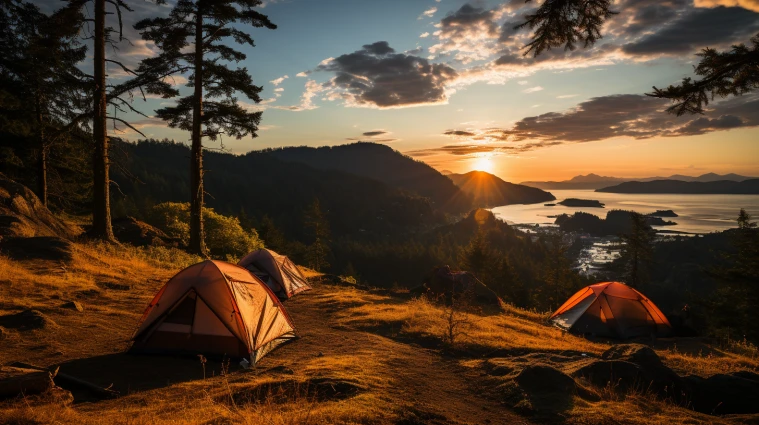















0 Comments